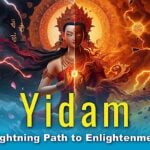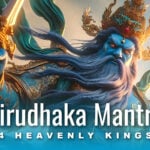How to De-escalate any Confrontation, a Vital Practice in Modern Times: The Sutra with Advice to Venerable Punna from the Buddha
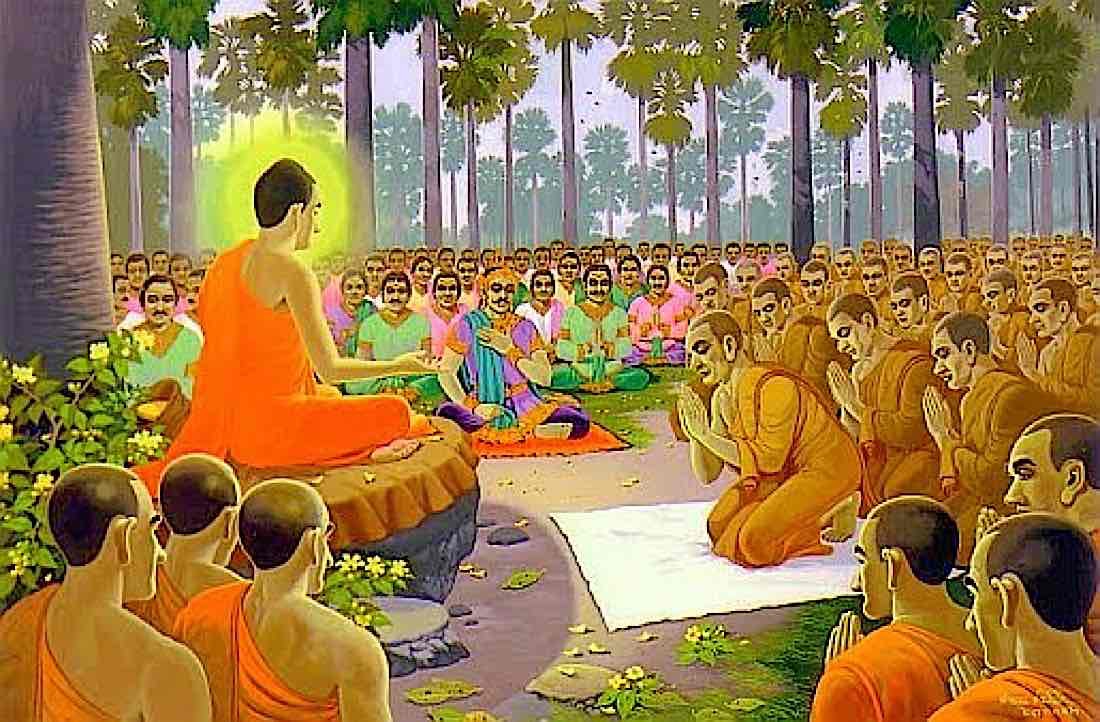
A few hundred years before the phrase “turn the other cheek” was coined, Buddha engaged in a brilliant advice session with the monk Venerable Punna. Although the advice was not specifically about “turning the other cheek” — Buddha was advising the future Arhat on the “Cessation of interest” or non-attachment — it stands as a shining example of how to de-escalate any situation. Buddha, after delivering a short dissertation [full Sutra below] asked Venerable Punna if he understood. The great Arhat magnificently answered the Blessed One’s questions with the ultimate “turn the other cheek” messages:
The Blessed One: ‘Punna, the people of Sunaparanta are rough, if they scold and abuse you, what will you do?’
Punna: ‘Venerable sir, if the people of Sunaparanta scold and abuse me. It will occur to me, indeed the people of Sunaparanta are good, they do not hurt me with their hands.’
Later, the Buddha asks, ‘Punna, if the people of Sunaparanta hurt you with a stick, what will you do?’
Punna: ‘Venerable sir, if the people of Sunaparanta hurt me with a stick, it will occur to me, indeed the people of Sunaparanta are good, they do not hurt me with a weapon’
Buddha even challenged Punna on his reply if they actually tried to kill him.
What advice had Buddha given Punna that led to such perfect replies? Buddha said,
Punna, there are pleasing, agreeable, forms, cognizable by eye-consciousness, arousing fondness, attachment and sensual desires. The Bhikkhu, does not delight welcome and cling to them, and the interest ceases. Punna, I say, the cessation of interest is the cessation of unpleasantness.
Although the “Advice to Venerable Punna” is a short sutra — fully translated below — it is one that everyone should read. With a population in the billions today, “non escalation” is a vital life practice.
Advice to Venerable Punna shows just how timeless the words of the Buddha are — applicable even in our modern lives 2500 years later.
Advice to Venerable Punna
I heard thus:
At one time the Blessed One was living in Anathapindika’s monastery, in Jeta’s grove in Savatthi. Then venerable Punna getting up from his seclusion in the evening, approached the Blessed One, worshipped sat on a side and said. ‘Venerable sir, it is good, if I’m advised in short, so that I could abide alone and secluded, zealous to dispel diligently.’ ‘Then Punna, listen, I will advice you.’ Venerable Punna agreed and the Blessed said.
‘Punna, there are pleasing, agreeable, forms cognizable by eye-consciousness, arousing fondness, attachment and sensual desires. The Bhikkhu, delights, welcomes and clings to them, and interest arises. Punna, I say, the arising of interest is the arising of unpleasantness. There are pleasing agreeable sounds cognizable by ear-consciousness, scents cognizable by nose-consciousness, tastes cognizable by tongue consciousness, touches cognizable by body consciousness and ideas cognizable by mind consciousness, arousing fondness, attachment and sensual desires. The Bhikkhu, delights, welcomes and clings to them, and interest arises. Punna, I say, the arising of interest is the arising of unpleasantness.
Punna, there are pleasing, agreeable, forms, cognizable by eye-consciousness, arousing fondness, attachment and sensual desires. The Bhikkhu, does not delight welcome and cling to them, and the interest ceases. Punna, I say, the cessation of interest is the cessation of unpleasantness. There are pleasing, agreeable, sounds cognizable by ear-consciousness, scents cognizable by nose-consciousness, tastes cognizable by tongue consciousness, touches cognizable by body consciousness and ideas cognizable by mind consciousness, arousing fondness, attachment and sensual desires. The Bhikkhu, does not delight, welcome and cling to them, and so the interest ceases. Punna, I say, the cessation of interest is the cessation of unpleasantness.
Punna, I have advised you in short. Now in which state will you abide?’
‘Venerable sir, now that I’m advised in short, I will abide in the Sunaparanta state.’
‘Punna, the people of Sunaparanta are rough, if they scold and abuse you, what will you do?’
‘Venerable sir, if the people of Sunaparanta scold and abuse me. It will occur to me, indeed the people of Sunaparanta are good, they do not hurt me with their hands.’
‘Punna, if the people of Sunaparanta hurt you with their hands, what will you do?’
‘Venerable sir, if the people of Sunaparanta hurt me with their hands, it will occur to me, indeed the people of Sunaparanta are good, they do not hurt me with clods.’
‘Punna, if the people of Sunaparanta hurt you with clods, what will you do?’
‘Venerable sir, if the people of Sunaparanta hurt me with clods, it will occur to me, indeed the people of Sunaparanta are good, they do not hurt me with a stick.’
‘Punna, if the people of Sunaparanta hurt you with a stick, what will you do?’
‘Venerable sir, if the people of Sunaparanta hurt me with a stick, it will occur to me, indeed the people of Sunaparanta are good, they do not hurt me with a weapon’
‘Punna, if the people of Sunaparanta hurt you with a weapon, what will you do?’
‘Venerable sir, if the people of Sunaparanta hurt me with a weapon, it will occur to me, indeed the people of Sunaparanta are good, they do not end my life with a sharp weapon’
‘Punna, if the people of Sunaparanta put an end to your life with a sharp weapon, what will you do?’
‘Venerable sir, if the people of Sunaparanta would put an end to my life, it will occur to me thus. There are disciples of the Blessed One, who loathing the body and life search for an assassin. Here I have got an assassin even without a search.”
‘Good! Punna, it is possible for you to abide in Sunaparanta endowed with that appeasement in the Teaching. You may do the fit now.’
Venerable Punna, delighting in the words of the Blessed One, got up from his seat, worshipped the Blessed One, and moving with his right side towards the Blessed One showed reverence. Putting his dwelling in order and taking bowl and robes, he left on a tour to Sunaparanta and arrived there in due order. Then he abode in that state. Venerable Punna, during that same rains, brought forth about five hundred male disciples and about five hundred female disciples and realized the three knowledge’s and venerable Punna attained final extinction.
Then many Bhikkhus, approached the Blessed One, worshipped, sat on a side and said. ‘Venerable sir, the clansman who was advised by the Blessed One in short has passed away. What are his movements after death?’
‘Bhikkhus, the clansman Punna is wise. He stood on his own in the Teaching. (*1) He did not worry me about questions in the Teaching. He has attained final extinction.’
The Blessed One said thus and those Bhikkhus delighted in the words of the Blessed One.
Note
1. He stood on his own in the Teaching. ‘paccapaadii dhammaassanudhamma.m’ That means, when advising he was on his own in the Teaching and did not need a Teacher. This is a special feature of one who had entered the stream of the Teaching.’sotaapattiphalasaccikiriyaa’.
More articles by this author
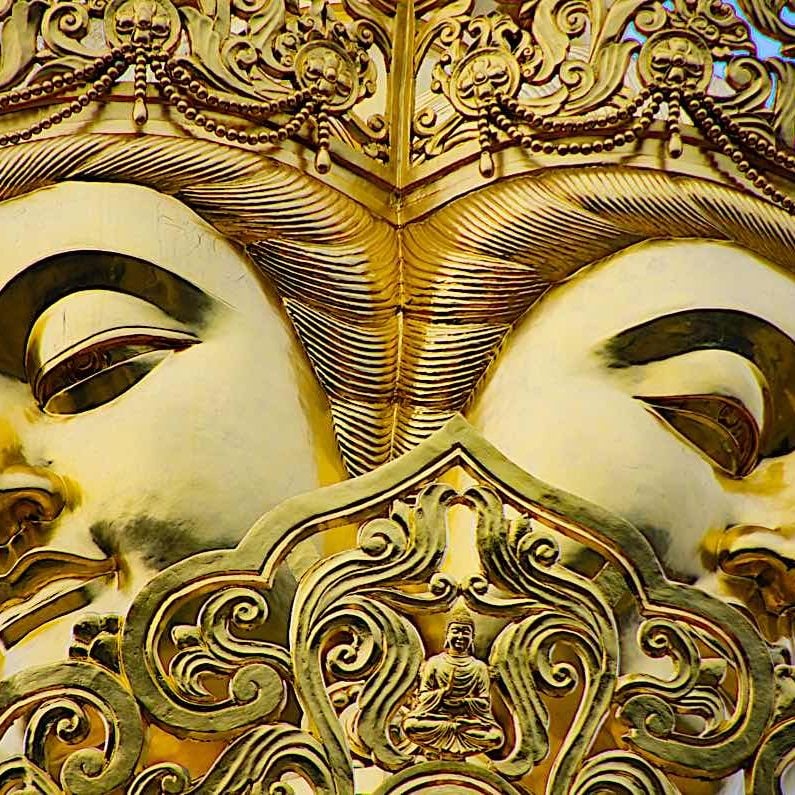
Samantabhadra’s The King of Prayers is the ultimate Buddhist practice how-to and itself a complete practice
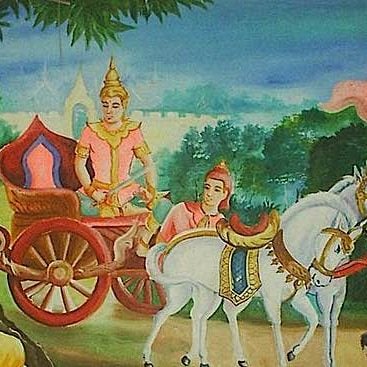
The Five Strengths and Powers or pañcabalā in Buddhism — the qualities conducive to Enlightenment: faith, energy, mindfulness, concentration and wisdom

Tara’s Great Dharani Supreme of all Mantras –with Music version– and the Sutra of Tara Who Protects from the Eight Fears: in Tara’s Own Words
Search
Latest Features
Please support the "Spread the Dharma" mission as one of our heroic Dharma Supporting Members, or with a one-time donation.
Please Help Support the “Spread the Dharma” Mission!

Be a part of the noble mission as a supporting member or a patron, or a volunteer contributor of content.
The power of Dharma to help sentient beings, in part, lies in ensuring access to Buddha’s precious Dharma — the mission of Buddha Weekly. We can’t do it without you!
A non-profit association since 2007, Buddha Weekly published many feature articles, videos, and, podcasts. Please consider supporting the mission to preserve and “Spread the Dharma." Your support as either a patron or a supporting member helps defray the high costs of producing quality Dharma content. Thank you! Learn more here, or become one of our super karma heroes on Patreon.
Lee Kane
Author | Buddha Weekly
Lee Kane is the editor of Buddha Weekly, since 2007. His main focuses as a writer are mindfulness techniques, meditation, Dharma and Sutra commentaries, Buddhist practices, international perspectives and traditions, Vajrayana, Mahayana, Zen. He also covers various events.
Lee also contributes as a writer to various other online magazines and blogs.




